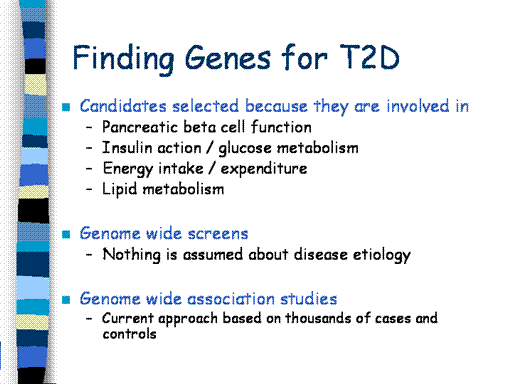One approach
that is used to identify disease susceptibility genes is based candidate
genes. Candidate genes are
selected because they are thought to be involved in pancreatic beta cell
function, insulin action / glucose metabolism, or other metabolic
conditions that increase T2D risk (e.g., energy intake / expenditure,
lipid metabolism). To date, more
than 50 candidate genes for T2D have been studied in various
populations. However, results for
essentially all of the them has been conflicting.
Possible explanations for the divergent findings include small
sample sized, differences in T2D susceptibility across ethnic groups,
variations in environmental exposures, and gene-gene interactions.
Because of the current controversy, we will discuss only a few of
the most promising candidate genes.
These include PPARγ, ABCC8, KCNJ11 and CALPN10.
